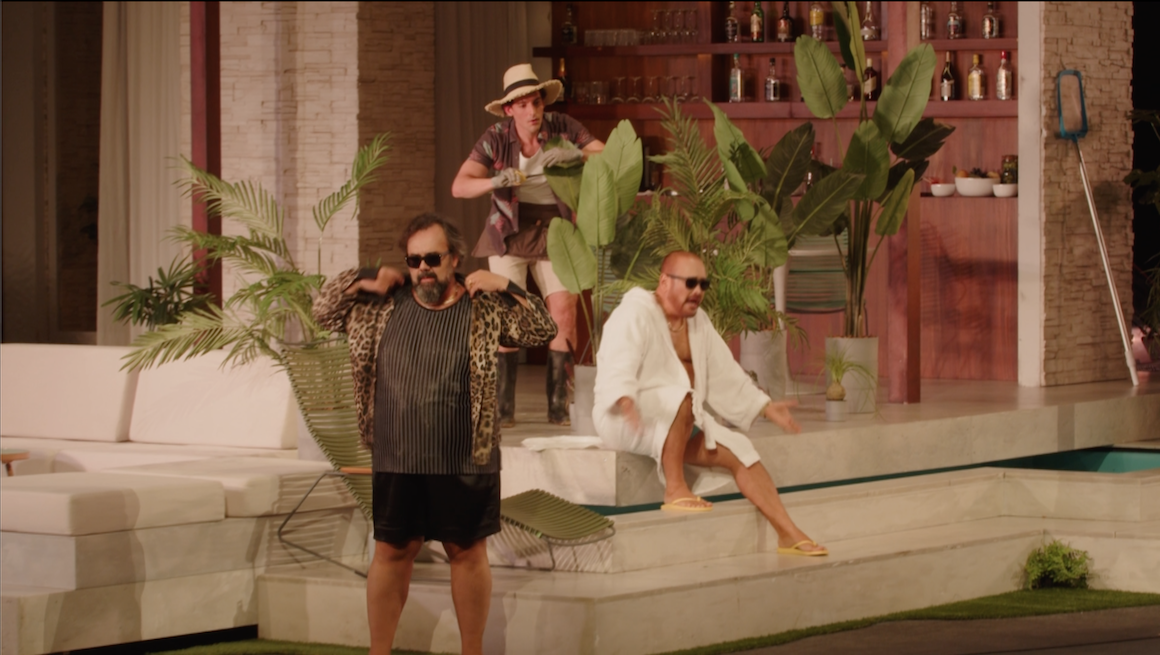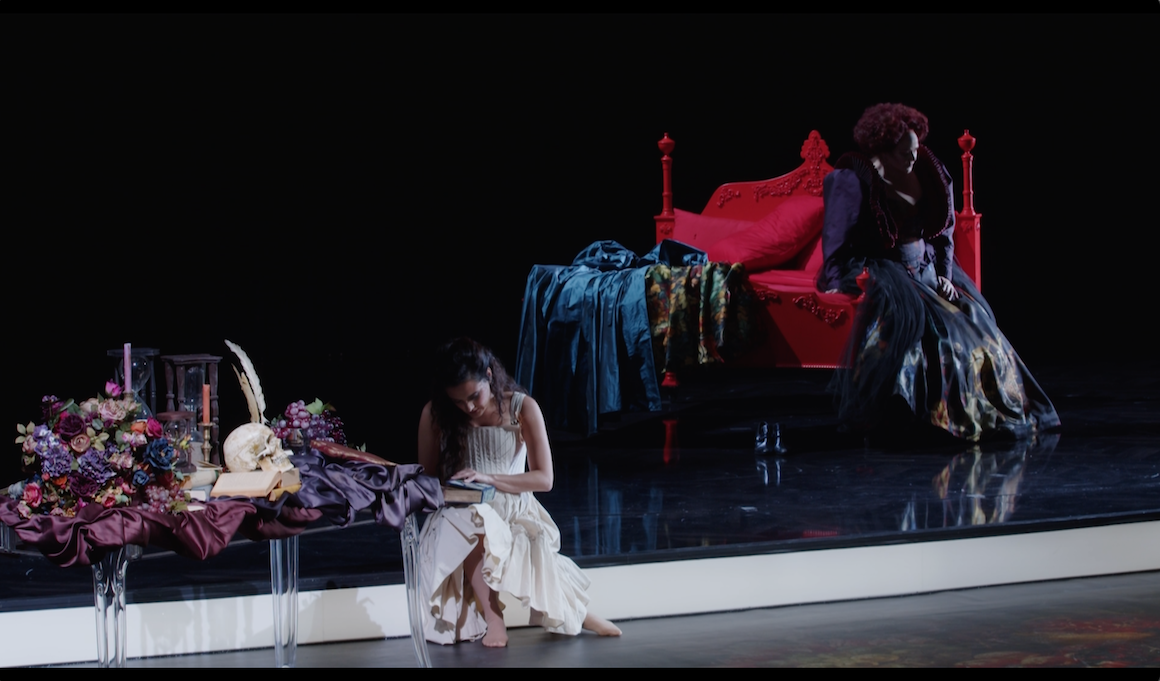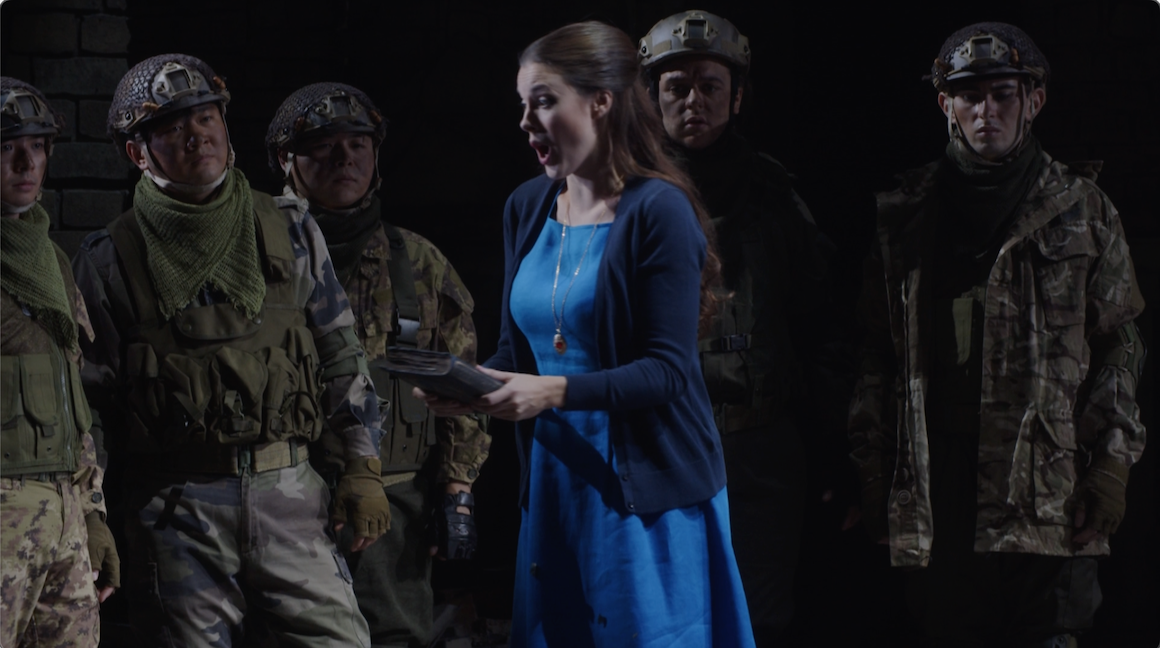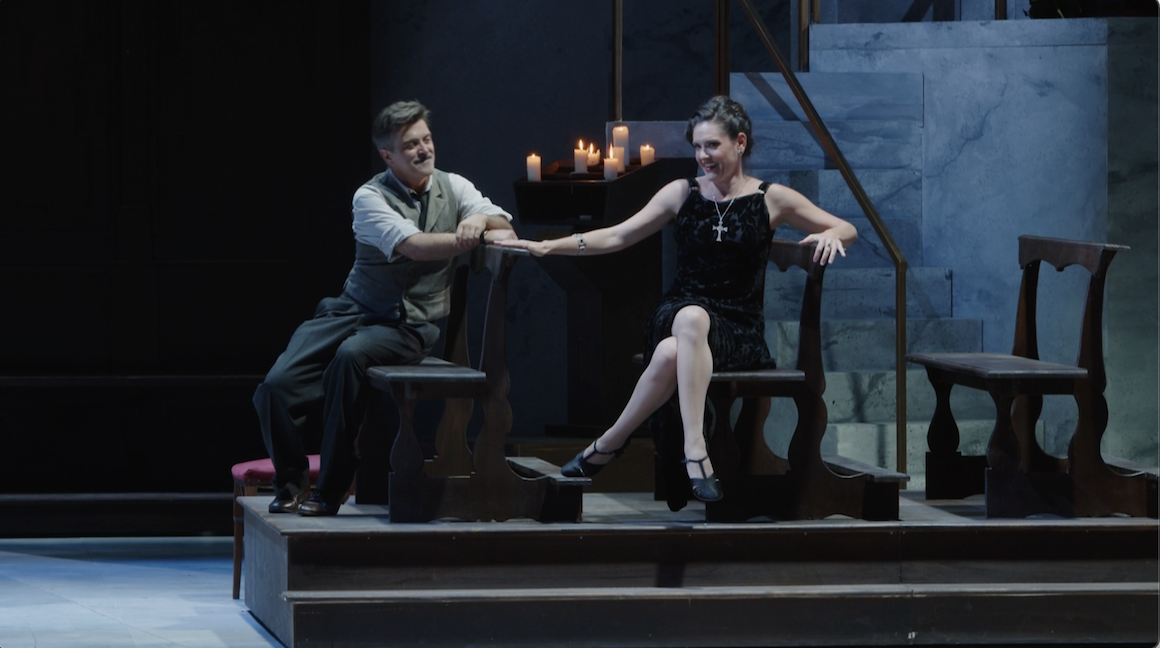The production of Donizetti’s Don Pasquale recorded at the 2024 Donizetti Festival in Bergamo is lively colourful and, generally, well done. Amélie Niermayer’s production is essentially contemporary with a heavy emphasis on class difference between the relatively upscale Pasquale clan and the Malatestas who are shown as some sort of Italian equivalent of “Essex man”. Doctor Malatesta has tattoos and wears a heavy gold chain and when we first see Norina she’s in braids, a T shirt, fishnets and also sports tattoos. Her taste doesn’t improve much after the “wedding”. In contrast, Ernesto is more stylish and less of a dweeb than in other productions I’ve seen.
Tag Archives: ricchetti
Dancing with Death
Stephen Langridge’s production of Donizetti’s Roberto Devereux recorded at the Donizetti Festival in Bergamo in 2024 is heavy on death symbolism. The general look of the sets is fairly abstract with a sort of light box with a gallery and a few bright red elements; the throne, the Nottinghams’ bed and so on, but there are skulls and other memento mori everywhere. Costuming is sort of operatic Tudor but Elisabetta’s dress is a print that includes skulls and she’s doubled by a human size, identically dressed, Death puppet. As seems to be the fashion, much of the time only the front of the stage is lit leaving characters lurking in the gloom upstage.
Zoraida di Granata
Zoraida di Granata is an early serious opera by Donizetti. It’s set in Muslim controlled Granada in 1480. The city is under siege by the Spanish and the usurper Almuzir is in control and wants to marry Zoraida, daughter of the former king, but she’s in love with Abenamet, leader of the aristocratic and warlike Abencerrages. Almuzir makes Abenamet commander in chief of his army and entrusts him with a sacred flag. If he returns victorious and with the flag he gets Zoraida but if he loses the flag he’ll be executed as a traitor. Naturally Almuzir has arranged for his sidekick, Ali, to betray the flag to the Spanish. The victorious hero is going to be executed but Zoraida promises to marry Almuzir if he spares Abenamet. Then the lovers meet secretly and after the statutory rowing about Zoraida betraying him Abumet exits. But Ali has overheard the conversation and gets Zoraida sentenced to death for treason. Only a knight showing up to defend her in trial by combat can save her (that again!). Of course it’s Abenamet in disguise and he beats Ali who fesses up. The clan want to kill Almuzir and Ali but Abenamet forgives them and in return gets the girl.
Elegant 1930s Tosca
Puccini’s Tosca was recorded for video last year at the Maggio Musicale Fiorentino in a production by Massimo Popolizio. It’s set in the 1930s but other than sets and costumes appropriate to that period it’s played dead straight. Although there’s some kind of mafia/fascisti vibe it’s not really explored and one really experiences it as a “traditional” Tosca. The 30s aesthetic though certainly suits Vanessa Goikoetxea who comes over as very glamorous.
Wot, no cakes?
I understand that the mission of outfits like the Teatro Donizetti is to “rescue” forgotten operas but, frankly, some of them ought to remain forgotten. I would put Donizetti’s Alfredo il Grande in that category. It premiered in Naples on 2nd July 1823 and closed after one disastrous performance not to be seen again until a run in Bergamo in November 2023 which was recorded for video.
Gory Guelphs and Ghibellines
Throughout the history of Italian opera the long running feud between the Guelphs and the Ghibellines has provided composers and librettists with endless opportunities for pointless revenge killings and other assorted mayhem. They werer still doing it in 1907 when Frencesco Cilea premiered his short three act opera Gloria.
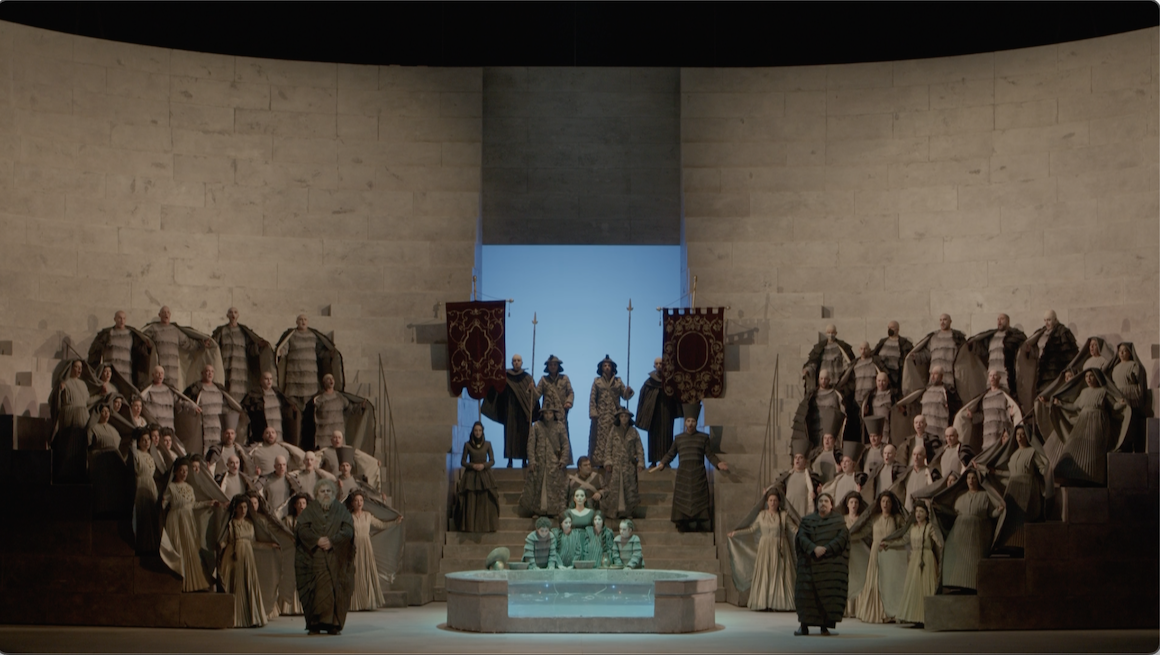
Doktor Faust
Ferrucio Busoni’s Doktor Faust was left unfinished at the composer’s death in 1924 and completed by Philip Janarch. Further sketches for the work by the composer were fleshed out and incorporated into the score by Anthony Beaumont in 1982. That more complete version was performed at the Maggio Musicale Fiorentino in 2023 and recorded for video.
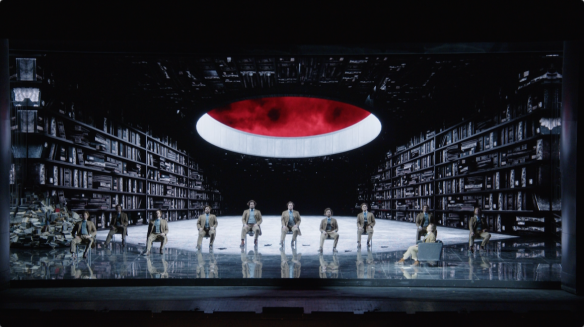
Commedia meets Busby Berkeley
The annual Donizetti festival in Bergamo makes a point of resurrecting less well known Donizetti operas. In 2022 Chiara e Serafina; Donizetti’s first commission for La Scala, got the treatment. It’s got some very decent music if you like early Donizetti. The Sestetto in Act 2 is particularly well constructed and it’s generally tuneful and allows the singers to strut their stuff.

La favorite
So here goes with a video recording of one of those 19th century Paris operas that nowadays, if they get done at all, tend to get done in an inferior Italian version. We are talking Donizetti’s 1840 opera La favorite written for l’Opéra de Paris. The recording is of a production given at the Teatro Donizetti in Bergamo in 2022 and it’s clear that both director and conductor have gone to some lengths to get as close to the spirit of the work as possible. I think by and large they succeed.
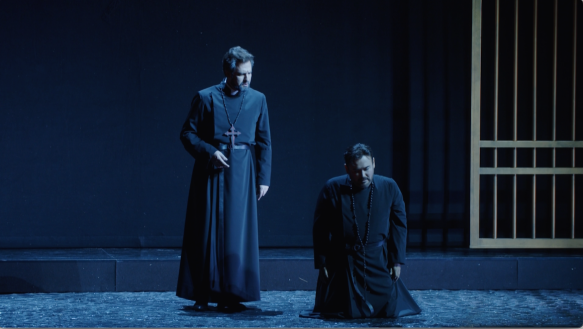
Ernani
Ernani is an early Verdi opera (1844) and it’s not performed that often (16th most performed Verdi opera according to Operabase). It was given at the Maggio Musicale Fiorentino in 2022, in a production by Leo Muscato, which was recorded for video release. How you react to it may partly depend on how you feel about bel canto operas on (more or less) serious themes. This is an opera about unrequited love and revenge (lots of revenge) but, in typical bel canto style, the music doesn’t always fit the mood. So here we open on a prelude where Ernani’s bandit gang are sorting out the corpses from their latest skirmish while the orchestra plays a rather jolly tune, then they break into a drinking song and then Ernani enters and sings a rather lovely cavatina. There are places where the music is darker and some of it is really rather good. In particular there are some strong duets for Ernani and his (everyone’s) love interest Elvira. Overall, I rather liked it musically.


